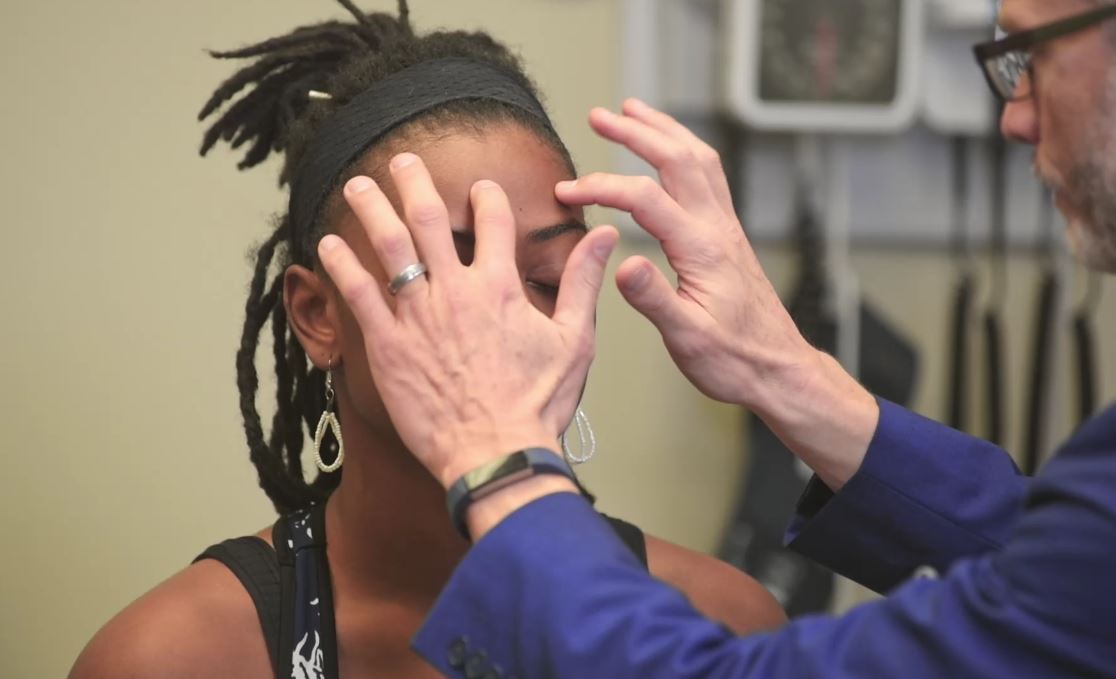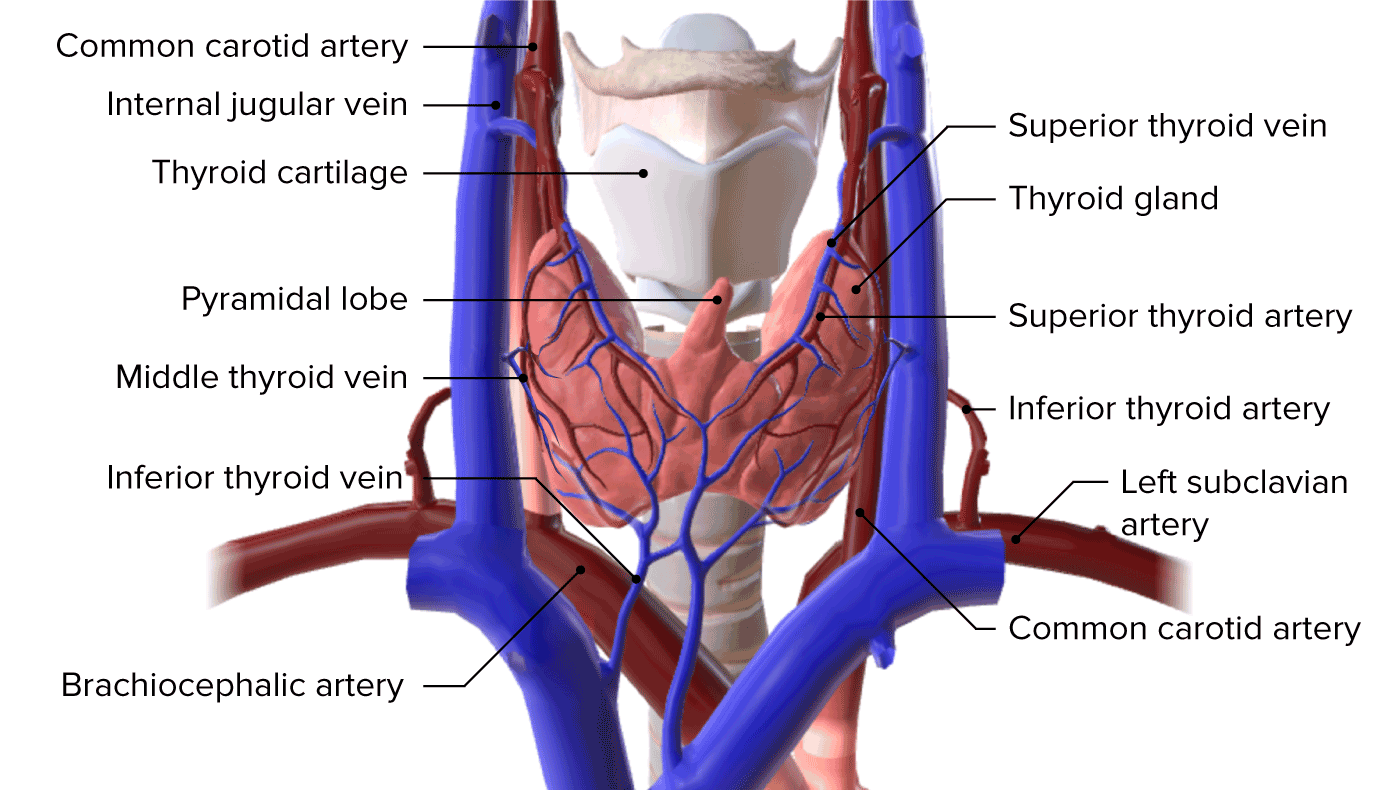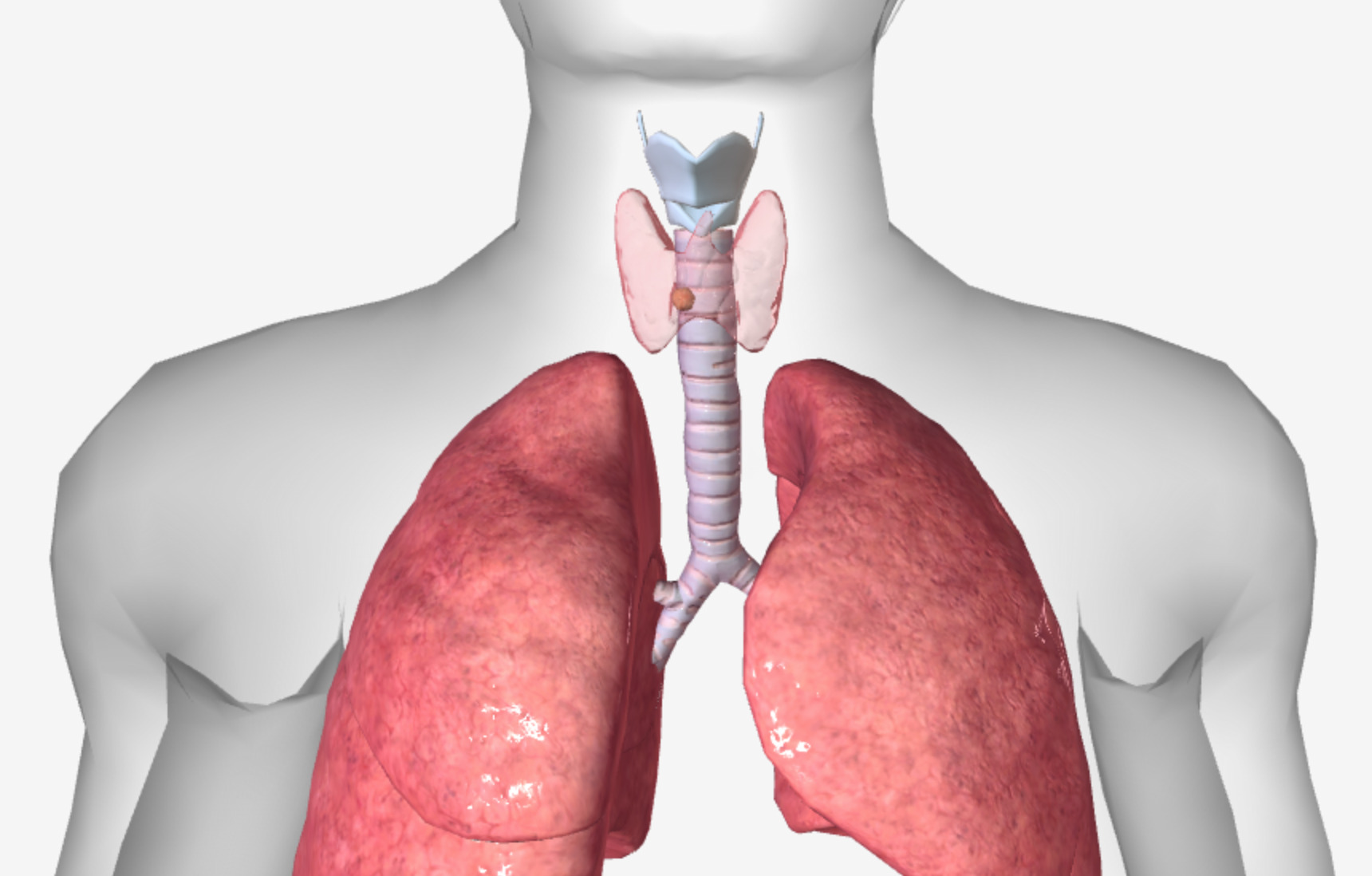Playlist
Show Playlist
Hide Playlist
Recurrent Laryngeal Nerve Injury, Anaplastic & Medullary Thyroid Cancer
-
Slides Thyroid tumors General Surgery.pdf
-
Download Lecture Overview
00:01 Let me pose a question to you. What if you injure the recurrent laryngeal nerve? What happens? I’ll give you a second to think about this. Findings of recurrent laryngeal nerve injury: Remember that the recurrent laryngeal nerve is actually a branch of the vagus nerve or cranial nerve number X. 00:21 It innervates the intrinsic muscles of the larynx. 00:25 With an unilateral nerve injury, one may get hoarseness or weakened voice. 00:29 This doesn't happen with a bilateral injury. 00:32 The vocal cord remains in a midline position. Remember, if you were to injure both recurrent laryngeal nerves, now both vocal cords would be resting in a midline position. This, of course, can cause respiratory distress. Medical management of thyroid cancer includes radioactive iodine specifically the radiotracer iodine-131 in high doses. 00:57 Remember, radioactive iodine therapy does not work in medullary because medullary cancer does not uptake radioactive iodine. Radioactive iodine concentrates in the remaining thyroid tissue particularly, remember, even though you thought you may have removed the entire thyroid, there may be some residual tissue. Thyroid tissue uptake is stimulated by high TSH levels. 01:21 This is why patients do not undergo a period of thyroid replacement to allow the thyroid stimulating hormone levels to rise. High thyroid stimulating hormone levels are achieved by thyroid suppression therapy. Let’s talk about anaplastic thyroid cancer briefly. 01:39 It’s got uniformly poor prognosis; it is locally invasive; and surgery, if possible. Unfortunately, the vast majority of surgery offered to anaplastic thyroid patients are palliative in nature. Palliation, we mean symptoms such as difficulty swallowing or difficulty breathing with local invasion. Otherwise, they may need chemo and radiation for palliation only. There are some clinical trials that are running for anaplastic thyroid cancers and your patient may be a candidate. 02:11 Let's have a short discussion about primary thyroid lymphoma. 02:15 It is a less common thyroid cancer type, it represents less than 5% of all thyroid cancer cases. 02:21 There is a strong association with Hashimoto’s thyroiditis. 02:24 It presents with an enlarged thyroid mass, this may leads to hoarseness and difficulties with swallowing. 02:30 For diagnosis you can either use FNA, core needle biopsy or a surgical biopsy. 02:35 You have good management options in chemotherapy and radiation therapy. 02:39 Let’s talk about medullary thyroid cancer. Medullary thyroid cancer requires central lymph node dissection. 02:46 That’s an important clinical pearl as opposed to selective lymph node dissection for papillary. 02:52 Let me pose a question to you. What blood test can help diagnose a recurrence? I’ll give you a second to think about this. Answer is thyroglobulin. This is a useful marker after total thyroidectomy. Remember though in medullary thyroid cancer, we follow calcitonin levels, not thyroglobulin levels. Let’s talk about medullary thyroid cancer in a hereditary pattern. These are considered associated with RET proto-oncogene. 03:31 This is associated with MEN, multiple endocrine neoplasia 2 syndrome. This is high-yield information. 03:39 Remember though that the vast majority of medullary thyroid cancers are still sporadic. 03:44 Thank you very much for joining me on this discussion of thyroid cancer.
About the Lecture
The lecture Recurrent Laryngeal Nerve Injury, Anaplastic & Medullary Thyroid Cancer by Kevin Pei, MD is from the course General Surgery.
Included Quiz Questions
What laboratory test is used to evaluate for papillary thyroid cancer recurrence after initial treatment?
- Serum thyroglobulin levels
- Serum calcitonin levels
- Serial neck ultrasounds every 6 months for up to 3 years
- Serum thyroid stimulating levels
- Serial physical exams every 3 months for up to 1 year
Which type of thyroid cancer has a hereditary component and is associated with MEN-2 syndrome?
- Medullary thyroid cancer
- Papillary thyroid cancer
- Anaplastic thyroid cancer
- Follicular thyroid cancer
- Cortical thyroid cancer
A patient is experiencing hoarseness of her voice several days post-operatively after thyroidectomy for follicular thyroid cancer. What is the most likely reason for this?
- Recurrent laryngeal nerve damage during surgery
- Cricoarytenoid joint injury due to intubation
- Anticipated post-operative local inflammation
- Radioactive iodine treatment side effect
- Cranial nerve XI injury during surgery
Customer reviews
5,0 of 5 stars
| 5 Stars |
|
5 |
| 4 Stars |
|
0 |
| 3 Stars |
|
0 |
| 2 Stars |
|
0 |
| 1 Star |
|
0 |






